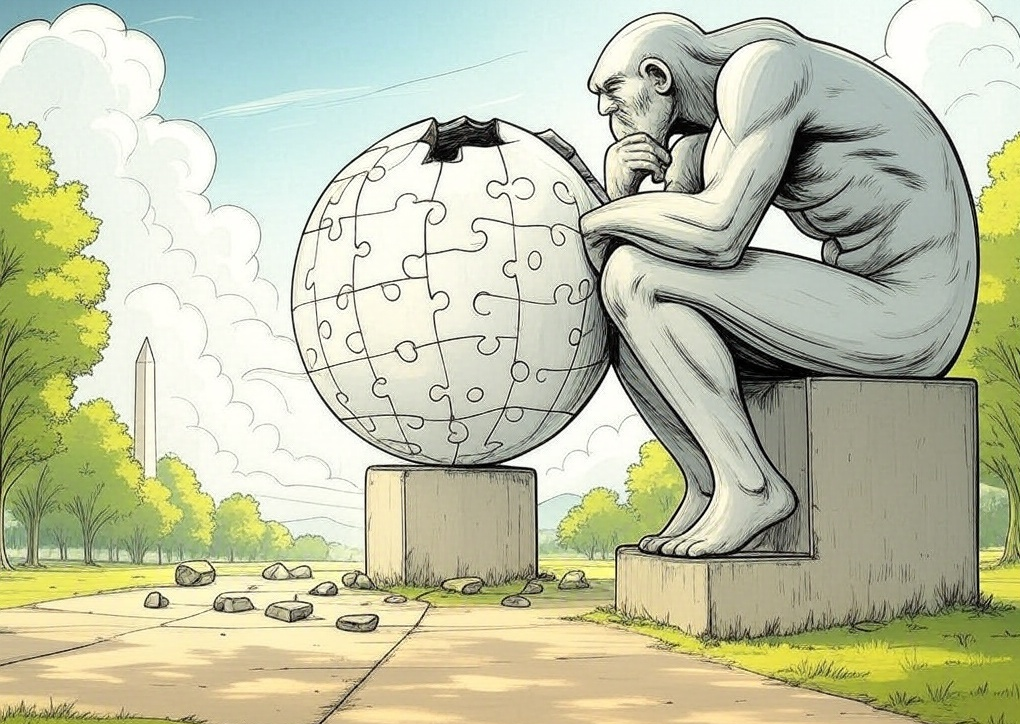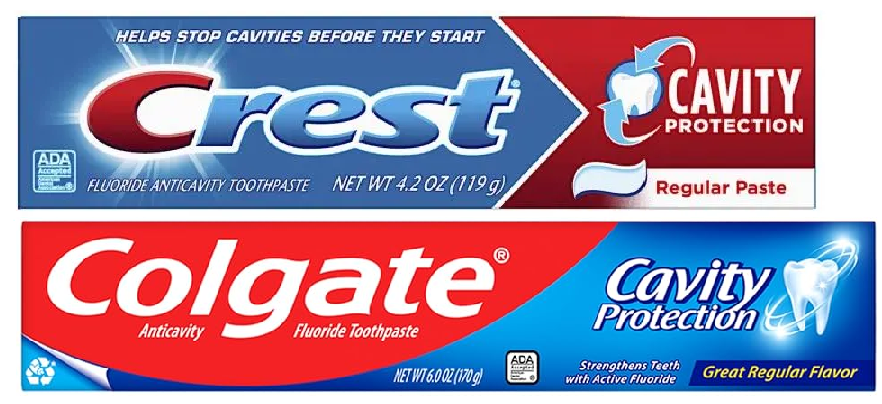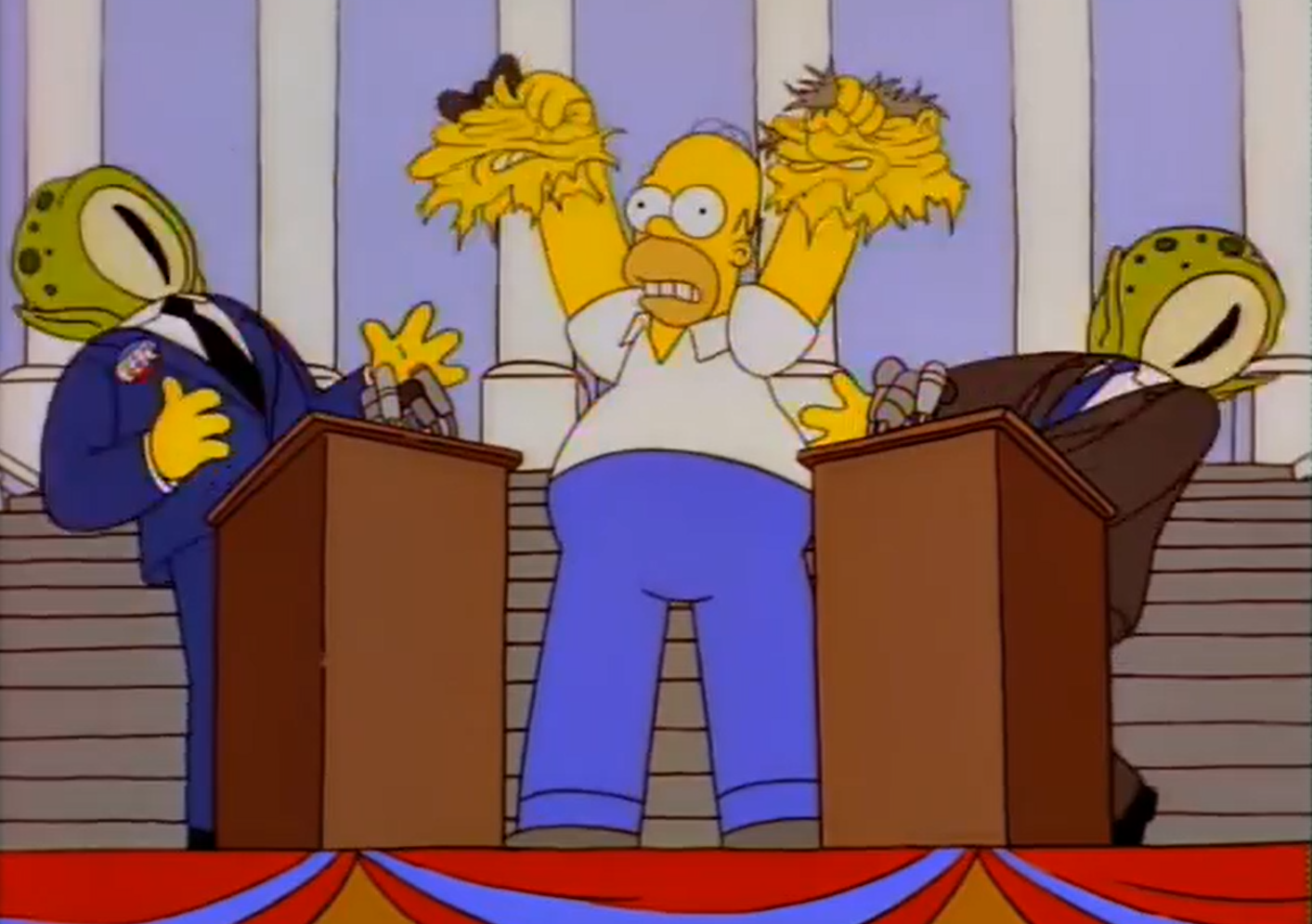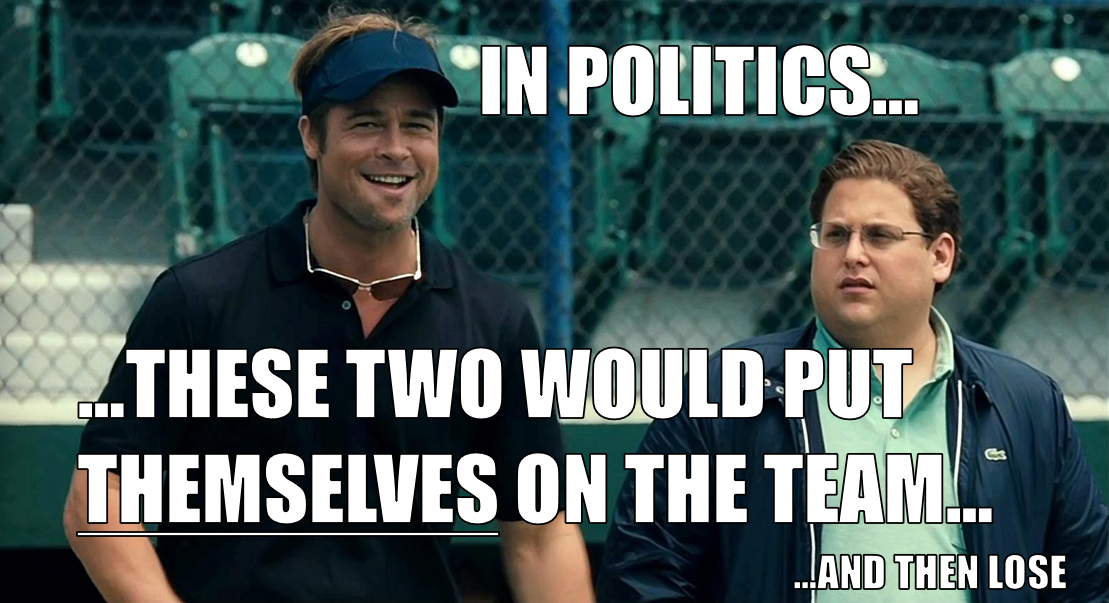
Intro
I don't care who does the electing,
so long as I do the nominating.
-Boss Tweed, Tammany Hall (c. 1870)
What type of government is best?
Well, “democracy” – of course!
But that is too vague.
The world contains many “democracies” – each different from the next. “Majority rule” is the norm in formerly-British countries, but “proportional representation” is used in Continental Europe and Latin America. Some countries use “open-list” PR, but others use “closed-list” PR. Some are Presidential (such as the USA), others are Parliamentary (such as the UK). Each democracy is unique. France – mixed a bunch of ideas together; Italy – is constantly changing their system.
North Korea claims to be a democracy (their official name is: “The Democratic People’s Republic of Korea”). They have elections. Is that all it takes? Russia – claims to be a democracy. China – as well. Do we believe them? No. But – in what objective sense are they lying?
What is democracy, anyway? Are some democracies better than others? And if so… is one form the perfect form?
Table of Contents
- Crest vs Colgate – Both toothpaste options are pretty good. Why then are both candidates always so bad?
- The Pre-Campaign – How do you get on the ballot, in the first place?
- Why Two is the Optimal Number of Parties – Third parties, alternative voting schemes, proportional representation… these are the wrong solution to the wrong problem.
- Bad Candidates – Why each bad candidate makes the other worse, in a never-ending spiral.
- Districts – How to automatically handle gerrymandering, apportionment, electoral college, etc in one fell swoop.
- Integrity – Independent Agencies, Checks-and-Balances, Separation-of-Powers, Deep State, etc.
- The Ideal Democracy – How I would design a democracy from scratch.
- Getting There from Here – We can’t redesign anything from scratch – so what should we do (in USA in 2025), instead?
- Misconceptions About Democracy – A big table, contrasting “my views on democracy” with “the traditional views”.
- Competition: The One True God – Conclusion. Four appendices.
Part 1: Crest vs Colgate

A. Toothpaste Nirvana
Imagine that you want toothpaste.
You walk into CVS, and consider two options: “Crest” vs “Colgate”.
Both are pretty good. Both are cheap, safe, and effective. Both prevent cavities, both taste pretty good, both brighten your teeth.
How lucky we are! To have not one (!), but two (!!) good choices. In fact, we have two nearly optimal choices. We can confidently assume that both “Proctor & Gamble” (the makers of Crest) and “Colgate-Palmolive” (makers of Colgate) are working as hard as possible to exploit all of society’s knowledge of toothpaste-making (and of toothpaste-distribution, toothpaste-marketing, etc), to give us – literally – the best possible product, at the lowest price.
Even the imperfections in the toothpaste, are rational. After all, no product is perfect, and society’s researchers can only improve one product at a time. (They must divide their time among cancer research, A.I., and other unsolved problems.). Of all the R&D ever done by humans, only a minuscule portion was ever allocated to toothpaste-lore. When we compare the high quality, to the overall R&D neglect, we might as well call the end result: “miracle-paste”.
And this is true of almost everything we buy: great products at low prices. It is a literal miracle. Hallelujah!
B. The Giant Douche vs The Turd Sandwich
In politics, it is the opposite. We typically have two bad candidates.
This dire situation is frequently mocked. South Park’s Season 8 Episode 8 features an election between “A Giant Douche” and “A Turd Sandwich”. A popular bumper sticker reads: “If you choose the lesser of two evils, you are still choosing evil!”. A cartoon depicts sheep, voting on who will eat them (a lion, or a wolf).
And my personal favorite, from The Simpsons:

Take a good look at your beloved candidates!
[rips off mask]
They're nothing but hideous space reptiles!!
...[gasp]...
It's true -- we *are* aliens.
But... what are you going to do about it..?
It's a two-party system -- you have to vote for one of us!
[Both Aliens Laugh]
Alas! It’s the opposite of how it was with toothpaste.
Here, we have only two options – and both are bad. How unlucky we are! Snake eyes! A tree crushing our power lines, and our backup generator in one fell swoop! Two smoke detectors, malfunctioning the night of the fire! What are the chances! We must be cursed!!
Furthermore, both parties seem to know that they could do better. Known flaws exist – but “the party”, doesn’t do anything to fix these. It’s as if someone were pouring salt into the Colgate, and no one did anything about it. Despite everyone knowing.
Each of us has an opinion on questions such as: [1] “which party is best for the poor?”, or [2] “which party is best for the environment?”. But – let’s start by asking: “is anyone out there even trying that hard to win the Election?”. Given the obvious flaws in both candidates, in 2024, (Appendix 1), it would seem that the answer is a deeply mysterious “No”.
That is what this essay is about: why are things so good, in toothpaste …and so bad on election day?
And what should we do about it?
Part 2: The Pre-Campaign
This section asks the question: Who’s responsible for this mess?
Why are the two candidates, always so bad?
Each party wants to win, surely – so shouldn’t they be picking the best people they can find? Why not? What is going wrong?
Who is doing this to us, and why can’t we stop it? …why can’t we switch to something better?
Who takes responsibility – for a party’s poor choice of candidate?
It is a surprisingly deep question.
A. It Can’t Be the Candidate
The obvious reply, would be: “Trump is responsible for the R-party”, and “Harris is responsible for the D-party”.
But that answer is wrong. It misses the point of our original question: who picked these terrible candidates, in the first place? After all, it’s not like Harris picked herself. (Or did she? In that case, why couldn’t Pete Buttigieg just “pick himself”? Why couldn’t Biden block himself from being anti-picked?)
After the election is won, it’s a different story. After you take the Oval Office, you’re in charge. We all know that.
But what about before?
B. The Three Phases
Party responsibility can be divided into 3 phases:
| Name of Phase | Time Period (Literal) | Time Period (Procedural) | Who Leads the Party? | Is this part working? |
|---|---|---|---|---|
| Ruling Phase | Jan 2020 - Jan 2024 | Inauguration Day –> Inauguration Day | The President | Yes |
| Pre-Campaign | Early 2024 - Mid 2024 | Iowa Caucus –> Nomination Ceremony at National Convention | ??? | No |
| Campaign Phase | Mid 2024 - Nov 2024 | Nomination Ceremony –> Election Day | The Presidential Candidate | Yes |
The first phase is easy to understand. If Trump wins on Election Day, then he leads the Republican party – and the nation. Trump will be blamed for every mistake. Every flaw in the government, every error – will be blamed on him. He is responsible for fixing all these flaws. That is his job. (Same for Harris, if she wins.)
The third phase (“Campaign”) is also easy to understand. Once Trump wins the 2024 R-nomination, he becomes (in his case) the Opposition Leader. He leads the Republican attack against the Democrats – it is Trump’s job to critique the Dem-government, and hold them to account for their mistakes. It is also his job to blame the Dem-candidate for all her shortcomings and mistakes. Every flaw in the Dem-campaign (and Dem-govt), is a gift to Trump – so Trump must sniff them all out. Furthermore, he must communicate these flaws to us, the People. He must sort and organize them in a way persuasive to us. That is the opposition candidate’s job: to punish the government for every flaw. Harris, after she won the 2024 D-nomination, became (in her case) the leader of the Ruling Party. It became her job to defend her Party’s performance (over the last 4 years). She also must critique Trump’s ideas, and Trump’s vision for a Rep-government. This phase ends on Election Day, when one of the two candidates wins (they move to phase 1, restarting the cycle) – in the same moment, their rival loses (and is eliminated).
The second phase is murkier. In the USA, candidates are chosen by the primary process.
This is the process that always gives us Turd vs Douche. So – who is “responsible” for the primary selection going bad? (Or good?)
C. Why it isn’t “The People”
A naive answer would be: “the people”. After all, “the people” voted in the primaries!
However, upon closer inspection, this answer is not accurate.
First, primary voter turnout is very low: around 15% total. (In contrast, on Election Day it is roughly 55%-65%, which is also low, admittedly, but at least >50%.) Even if we only consider cases where the opposition party must pick a brand new name (ie, we exclude, for instance, cases where a sitting president runs for a 2nd term), the numbers are abysmal. Biden-2020 got just 19M primary votes – a mere 12% of the 158M who would ultimately vote on Election Day. Trump-2016 got just 14M primary votes – a mere 10% of the 136M who would ultimately vote on that Election Day. As a percentage of all eligible voters, these numbers are 7.8% and 6.0%, respectively.
Second, it is not the people who vote – it is the “delegates”. When Bernie-2016 faced off against Hillary-2016, the popular vote was pretty close: 13M-17M (44%-56%). But it made no difference – Hillary smoked Bernie 2842-1865 on delegates. This was because of “super-delegates” who all pledged loyalty to Clinton (partly because of her connections and corruption-powers, and partly because they thought Bernie [a half-Communist] would surely lose the general election). Both parties constantly tinker with these “delegate” rules to strike a balance between “the people” and “party elites/experts” – (as I will explain in Part 8).
Third, we have an infinite regress. Imagine a perfect world, where “the people” do indeed pick the candidate. How? How would they do that? An election, surely. But – who made the ballot for this election? Who narrowed it down to Hillary Clinton vs Bernie Sanders, in the first place? Is there a shortlist? Who makes it? Or – do we have sub-parties? A Left-Democratic and Right-Democratic party? And they have their own campaigns, yard signs, etc? But who chooses the leader of those? Is there an infinite tree of sub-sub-parties? (Presumably, with ever-lower voter turnout, all the way down.) If we have more than 2 choices, then we will have split-the-vote strategic voting1, which will ruin the Pre-Campaign of the primary. You can see that we have utterly failed to answer our original question: who is responsible for the “Pre-Campaign Phase”? All we did here, was pass-the-buck, to an infinitely-expanding list of pre-pre-[…]-pre-Campaigns.
Fourth, for “the people” to be held responsible, we must be able to blame them. Wrongdoers must be blamed – if they fail, they must suffer. At the very least, they must lose social status, and fall on the totem pole. Now – you might argue: “But they are blamed! If Democrats lose the general election (because their candidate was bad), then Democrats as a whole will fall in status”. Yes – that is true. However, the problem is that they all lose equally – it is not as though the Hillary-Democrats lose significantly more status than Bernie-Democrats. After all, the counterfactual experiment [where Bernie was tried], was never run, so no one knows for sure if Bernie would have helped – or hurt – the party’s chances. Thus, no one is blamed for screwing up the Pre-Campaign. Maybe it was the post-campaign, or ruling phase that was screwed up.
Fifth, in practice it is too difficult to “blame” 100+ million people at once – that is too diffuse.
There is a deep reason why The People are not responsible. And it is this: choosing the candidate is not their job. Citizens are not specialists in this job – no more than they are specialists in rocketry, or accounting. A layperson can never be a specialist, and “the people” are always laypeople.
If the country were a baseball game, the citizens would be in the audience – watching the game, buying tickets, sitting in the stands, and having a good time. The candidates would be the players on the field – two teams fighting each other (to win elections). The job of picking the candidate, is more like a talent scout, or GM – a completely different job.
Which brings me to my next point…
D. Scouts vs Players
“Finding the best person” for a job, and “doing that job”, are different skills.

For example, Babe Ruth might be the greatest baseball player – but was he also the greatest baseball talent scout? Probably not. In the movie Moneyball (2011), the optimal baseball talent scout is revealed to be an overweight econ nerd. (Admittedly – Jonah Hill’s real-life counterpart, Paul DePodesta, played Division I baseball [and football] at Harvard – but presumably no one ever compared him to Babe Ruth, [nor any other MLB professional] – and presumably, had DePodesta himself tried to play MLB baseball in 2002 [as a 29-year old, with a bad shoulder] he would have been obliterated.) Likely, there is some overlap, but not 100%. Hence: different superstars, doing different jobs.
In fact, the more we think about it, the less sense it would make. If Babe Ruth is the best player, then he should play – not scout. He should not be touring the country, scouting new players – that’s a different job!
A great actor is not necessarily a great casting director – and vice-versa. A great recruiter cannot necessarily do the job they are recruiting for – and vice-versa. A great romantic match-maker is not necessarily themselves the perfect match for everyone – and vice-versa.
Thus, the three phases (Ruling, Campaign, and Pre-Campaign) are distinct branches of science. They are like Chemistry, Physics, and Biology – related to each other, yet different. Each field has its own principles, its own theory, its own history, its own heroic figures, its own hangups and prejudices; its own researchers pushing the boundaries of knowledge to ever-greater heights.
In particular, these fields will produce different specialists. A world-renowned Physicist, will not automatically be a world-renowned Chemist – in fact, the process of becoming the best-of-the-best Physicist, probably entails a full commitment to the study of physics – at the expense of everything else (including Chemistry).
E. Conflicts of Interest
Thus, Harrison Ford (a great actor), is not necessarily a great casting director. These are separate skills.
But when you consider that one hires the other, you see the potential for corruption. A corrupt casting director, will tend to hire the wrong actor.
For example, what if Harrison Ford, won a big movie part [Star Wars 1977] – and this magically entitled him to be casting director for all new movies, forever? In fact, Ford is now allowed to cast himself, over and over again, for any role he wants. It would be an eternal dictatorship of Ford.
That bizarre scenario, is actually our American Pre-Campaign from 1988-2016. The Clinton-Bush family are cast as, not only the best rulers (having won a few big elections themselves), but also the “best” candidate-pickers. And? They usually pick their own immediate family members – what a coincidence!
We now see what a deep problem this is: “who watches the watchmen”. This is exactly the problem that democracy was invented to solve! We dropped the ball in the Pre-Campaign – it is defective, and no one takes responsibility for fixing it. That is why it produces Turds and Douches all day, instead of quality toothpaste.
F. Why Primaries Don’t Work
Perhaps now we see why voter turnout in the primaries is so low. Voters don’t really know anything about how to win an election; just as baseball-fans don’t know how to hire a team who will win the World Series. (They aren’t Paul DePodesta – they’re just fans. They know how to do the Wave, in the stands – and how to have fun.)
People are consumers, and they know how to compare two brands. They can compare Crest vs Colgate – and – they can compare Republican vs Democrat.
But – they do not know anything about how to produce toothpaste; nor anything about how to hire the people who do know. They do not know how to run the country, nor how to find the people who do. Voters do not themselves Rule, nor do they Campaign, nor Select Candidates – those are done by other people (politicians, candidates, and party insiders/ex-candidates). In primaries, we force Voters to try to select candidates – from a short, pre-packaged list (itself made by non-Voters). Voters mostly refuse to participate in this charade – and when they do participate, they do a bad job.
Thus, it is quite logical for “the people” to weasel out of this responsibility! And quite wrong for us, to try to force this responsibility on them, where it doesn’t belong. (I discuss this further in Part 4.)
G. The Campaign Phase Is Overrated
The Pre-Campaign, is arguably more important than the Campaign.
(As Boss Tweed noted, in the quote at the tip-top of this article.)
i. Platforms vs Candidates
The Pre-Campaign chooses the party platform, in addition to the candidate.
The platform contains all the details of what the party plans to do, if they win – so it is very important. The candidate exists to implement the platform. Ideally, (of course), our candidate would be trustworthy, and capable. But rarely does the candidate have overarching, unilateral authority to do whatever they like – instead, they are carefully holding together a huge coalition of people – their supporters.
By analogy, the platform could be a Last Will and Testament – (long list of precise instructions), and the candidate would be more like an executor (a possibly corrupt person whom we hope will implement the instructions as-written).
When the Pre-Campaign first starts up, the Opposition Party (who lost the last election, and is now out of power) has a chance to re-invent themselves. They will scour the country for talent, new ideas, and for new ways of persuading the general public that they have sincerely adopted these newer-and-better ideas. The ruling party must counter these efforts, move-for-move, like a game of chess – fighting hard to keep every vote.
Innumerable decisions will be made.
ii. Making a Platform
Platform-assembly is (or should be) when most of the important decisions are made – by specialists.
It is the moment when policy wonks, regular voters, communications specialists, activists, politicians, etc all meet – and plead their case. A case for why their ideas will help improve the platform, and increase the party’s likelihood of winning.
The integration of all these views, is an immense undertaking. It requires human creativity and intelligence. Ideas battle each other, and some are dropped, due to their trade-offs. Out of the mess, comes one consistent platform.
In contrast, the campaign is un-serious. In campaign speeches (and debates), candidates are always vague – they always give cheap applause lines (stupid and short). They always promise everything to everyone, and they are always vapid. Nothing serious is done during this time.
iii. By The Time The Campaign Starts, It’s Too Late
Probably – the campaign is mostly a last-ditch, mopping-up operation.
By the time candidates are chosen –ie, by the time they begin their campaign– it is probably too late. Voters have already formed most of their political opinions – because they have being doing this continuously, over the last 4 years. They will judge the Ruling Party based on their actual experience with the government – not campaign promises. By analogy – imagine switching every household in America to a new shampoo, on November 5th, with all of us using it, every day – for 4 years. It will not matter what the bottle (or shampoo commercials) say – by year 3, most of us will know if we like this shampoo or not. Did it cure people’s dandruff? Did it cure baldness? Is it good for children? If this shampoo is truly, objectively horrible, then most people will want to switch out of pure desperation – even if the new-shampoo-option has bottles (or commercials) that seem worse.
That is what the campaign is: the writing on the bottle. The writing on the toothpaste-box. The Pre-Campaign is where toothpaste is actually made – the Campaign is when it is placed on a shelf (in CVS) in a shiny box. All of the creative work is in the first phase.
The essence of democratic decision-making is
not the choice made by the system at elections,
but the ideas created between elections.
-David Detusch, The Beginning of Infinity
Plus – politicians lie. Especially on the campaign trail. And most voters are used to this! Only the very naive, would form their opinion of a candidate based on something that happened at a rally, or campaign event. (The attendees are mostly there to socialize with each other.)
Sadly, after an Election Day loss, the finger of blame is often pointed at the Campaign. In my opinion this is a mistake.
Finally, notice the Ruling phase has zero Democracy. The winning party rules with an iron fist, with minimal interference from the losing-party – and none at all from voters, aka “the people”. In contrast, the Pre-Campaign is where the people are consulted, and re-consulted, about every detail – tinkering with them all… until the end result is perfect.
H. Conclusion of Part 2
So – we now understand what the Pre-Campaign is. But we still must ask: why is it so bad?
I will answer that, in Part 4.
But first, I must clear up a big misconception, in Part 3.
Continue Reading: Part 3: Why Two is the Optimal Number of Parties
Footnotes
-
This was in fact, exactly what happened with Trump-2016. Trump “stood out” among 16 total candidates – during the very 1st question of the very 1st primary debate, Trump gave the only unique answer – after quickly looking left and right. As if God Himself wanted to drive this point home even further, the subsequent question was on the topic of “electability”. The preceding comment, was on how Trump was #1 in the polls. If anything is a Schelling-ocracy, then this was. Similarly, Biden-2020 was losing primaries left and right, and then conspicuously won the South Carolina primary and his rivals immediately dropped out and endorsed him. ↩
